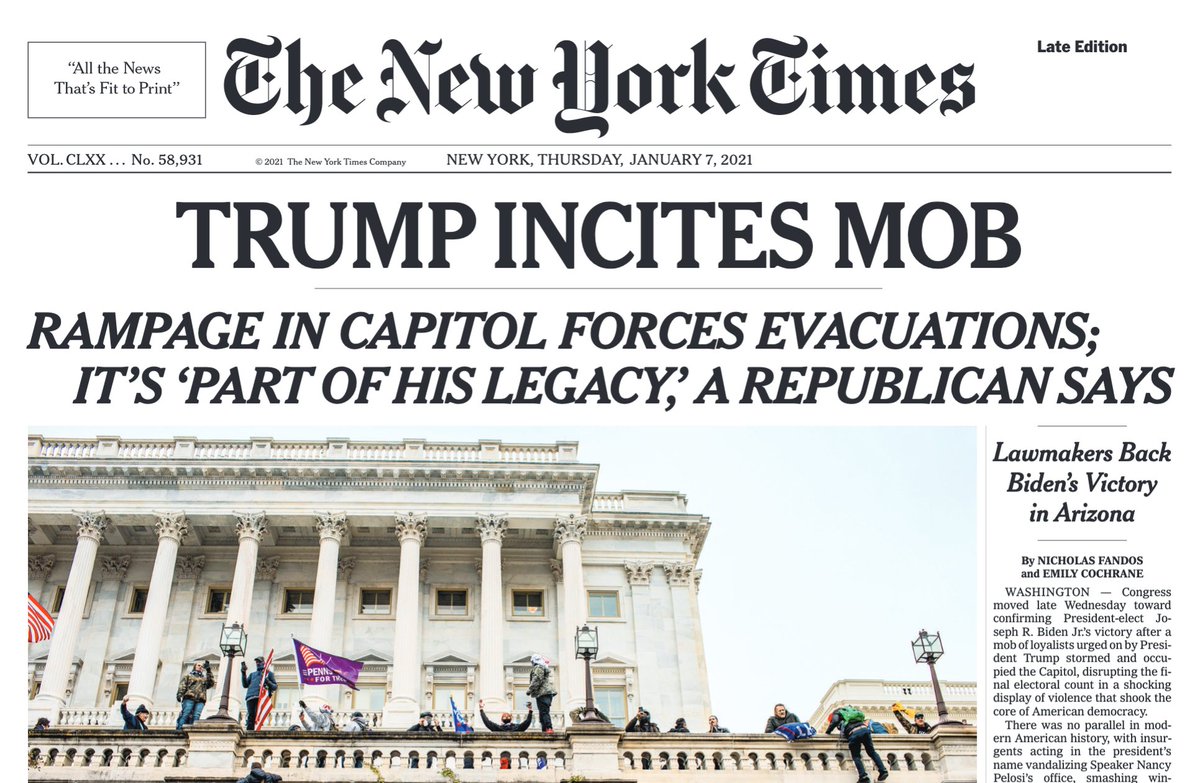As the Supreme Court prepares to rule on whether or not the 14th Amendment applies to Donald Trump (based on his incitement of an insurrection on January 6, 2021), thereby preventing him from running for public office, an amicus brief was filed that told this amazing story:
On November 6, 1860, Abraham Lincoln was elected as the 16th President of the United States.
On February 1, 1861, as the country prepared for Lincoln’s inauguration, Pennsylvania’s Representative John W. Killinger declared on the House floor that “preparations are actually threatened to take possession of this Capitol, and prevent the inauguration of the President elect. So far has the conspiracy progressed, that it… holds within its grasp the sworn officers of the Government…. Before Mr. Lincoln is inaugurated, this District will be the theater of commotion, and it may be, of violence.”
Later that month, Killinger’s fellow Pennsylvanian James Hepburn Campbell echoed this point about oath-breaking insurrectionists: ”This treasonable conspiracy, to resist the inauguration by force of arms… has drawn within its fatal vortex chiefs of the Cabinet.”
On February 18, 1861, Secretary of War Joseph Holt (who had replaced treasonous seditionist John B. Floyd) confirmed that oath-breaking insurrectionists had indeed aimed to prevent the inauguration: ”Men occupying the highest positions in the public service… who, with the responsibilities of an oath to support the Constitution still resting upon their consciences, did not hesitate secretly to plan, and openly to labor for, the dismemberment of the Republic…. Men in high political positions here… were known to have intimate affiliations with the revolution — if indeed they did not hold its reins in their hands — to the effect that Mr. Lincoln would not, or should not, be inaugurated at Washington.”
Finally, on February 13, 1961 — the day that Congress was set to unseal electoral votes and certify Lincoln’s victory — an anti-Lincoln mob congregated near the Capitol. Fortunately, the defenses held and they were unable to breach the building. So instead, the mob “stood outside and hurled insults at the head of the Capitol’s security detail General Winfield Scott, saying such things as ‘Free state pimp!’, ‘Old dotard!’ and ‘Traitor to the state of his birth!’ Observers of the scene back then described the crowd as ‘a caldron of inflammable material’ with ‘revolution on their minds.'” Sound familar?
So just to be clear, after Lincoln was elected, a plan to storm the Capitol and prevent his electoral votes from being certified was considered to be “treasonable conspiracy” and “dismemberment of the Republic” by the people who were in office at the time. As such, it seems beyond obvious that Section 3 of the 14th Amendment — which was specifically written so that anyone who violates their oath to the Constitution would be barred from public office — should also apply to any elected official who incited, supported, or otherwise provoked the storming of the Capitol on January 6th.
